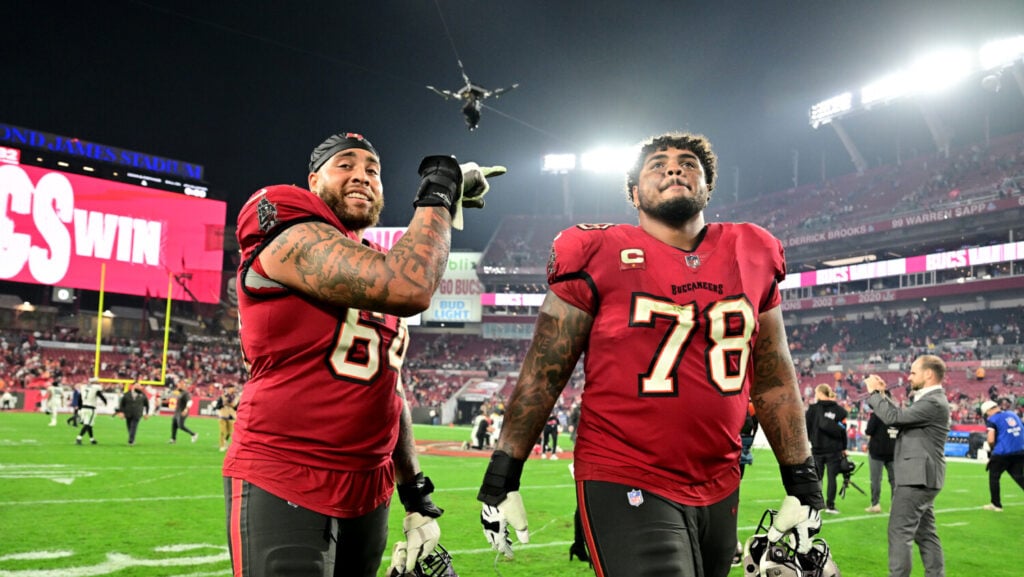Since the NFL expanded its playoffs in 2020, the Super Wild Card Weekend games haven’t been the most competitive. But with viewership up, does it matter?
If you’re a fan of closely contested NFL playoff games, you were largely disappointed over the long holiday weekend.
Aside from the Detroit Lions‘ thrilling 1-point win over the Los Angeles Rams in their first postseason game at home in 30 years, the Super Wild Card round wasn’t competitive. Houston blew out Cleveland, Kansas City froze out Miami, Green Bay destroyed Dallas on the road, Buffalo had little trouble with Pittsburgh, and Tampa Bay cemented Philadelphia‘s nosedive.
Since the NFL expanded the playoffs from 12 to 14 teams in 2020, only nine of the 24 Super Wild Card games were decided by a touchdown or less, 37.5%. That’s nearly 10 percentage points less than the number of close games during the 2023 regular season, when 128 of the 272 games were decided by 7 points or less, a 47% clip.
The bottom line is that, on the field, the NFL’s Super Wild Card Weekend has resulted in a Subpar Wild Card Weekend. Off the field, however, it’s no surprise that the two extra playoff games have been a financial boon for the league.
Having six games in the first round instead of four allows the NFL to placate its four linear TV partners — CBS, NBC, Fox, and ABC/ESPN. It also gives the league more room to experiment and innovate, taking $110 million from NBC to broadcast Saturday night’s Chiefs-Dolphins ice bowl on Peacock, the first exclusive streaming playoff game in NFL history.
The plan clearly worked.
Nielsen said that 23 million viewers tuned into the blowout, the most streamed live TV event in US history, though that number includes linear viewers in the two local markets and the NFL+ audience. That number was up 6% from last year’s NBC-only playoff game, with a likely jump in subscriber growth that will make every streamer salivating at the thought of getting in on the action.
It won’t be long before more playoff games are on Paramount+, ESPN+, and Amazon’s Prime Video, as it’s a win-win situation — the two extra games make it vastly easier for the NFL to say “yes” to its media partners, and the league keeps everyone happy.
Having one more playoff team per conference gives more teams hope during the regular season and provides a greater incentive to gun for the top seed with just one bye total per conference. But the current postseason structure is coming at the expense of the Wild Card round.
While the seventh-seeded Packers were a great story that wouldn’t have had the opportunity in the previous playoff system, they were the only road team to win over the weekend. In the 14-team playoff era, home teams won 16 of the 24 Super Wild Card games. The numbers would suggest that, competitively, going back to 12 teams would make first-round games better.
Given how much more money the league makes now during the current format, reducing playoff teams will never happen. But if the playoffs remain the same as currently constructed, four years of data shows that you’re just not going to get great Wild Card round games.
Viewership remains sky-high. Dallas’ flop on Sunday got 40 million viewers on Fox, up 20% from its similar window last year. Streaming-only playoff games gives the NFL yet another nine-figure source of revenue while spreading the inventory among its media partners.
The games on the field may not be competitive compared to the regular season, but the NFL isn’t really incentivized to care. The Subpar Wild Card Weekend era is here to stay, and it doesn’t seem like the NFL’s tens of millions of fans really mind at all.
Business is booming, good games be damned.
